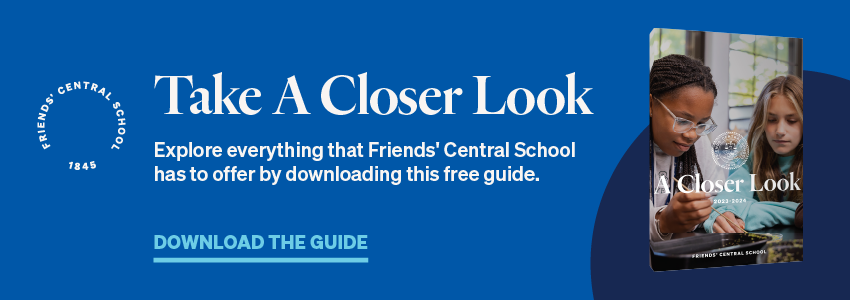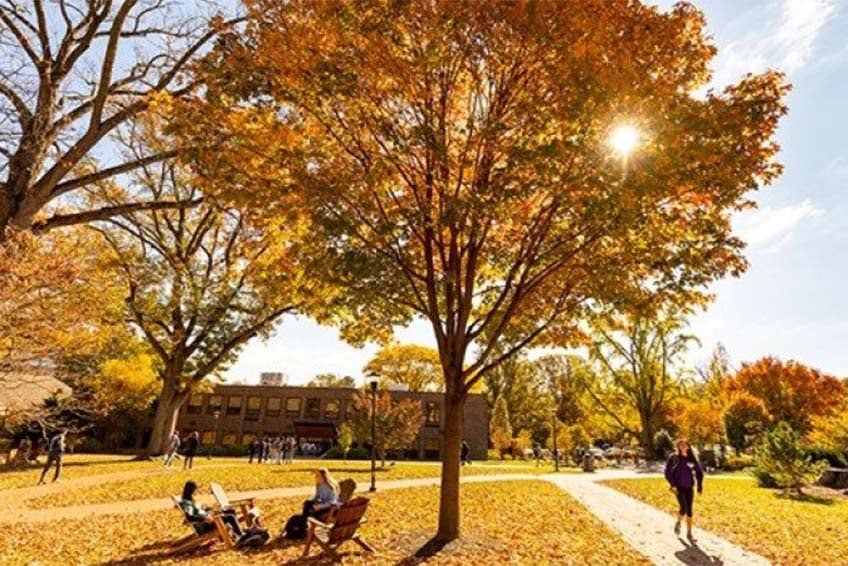
At Friends’ Central School, students learn to take care of the earth by becoming active advocates for change and community. From nursery to grade 12, students participate in processes designed to foster creative, critical, and flexible thinking, along with compassion.
“We’re very interested in building leaders by listening to our students and by letting them explore their curiosities. We’re believers in trial and error in the pursuit of learning,” said Assistant Head of School Lydia Martin.
Friends’ Central School is an independent, coeducational Quaker day school founded in 1845 serving approximately 750 students. Located in the Philadelphia suburbs, the school has two campuses. The Middle and Upper Schools share a campus in Wynnewood, Pa. while the Lower School occupies a site in the heart of Wynnewood at the Old Gulph Road campus.
Free Downloadable Guide: Take a Closer Look at Friends' Central School
Each campus provides a nurturing environment that supports the testimonies of stewardship, community, peace, and integrity. In every grade, the curriculum asks that students stand up for what they believe and behave respectfully at school and out in the world. The school’s expectations of students are both rigorous and individualized, and classrooms foster a sense of wonder and progress. Teachers will often acknowledge their own continuing growth and embrace the idea that discovery can be collaborative.
Quaker principles assist students in understanding issues of social justice and environmental challenges. Students are tasked to question the dilemmas of the 21st century. Lesson plans inside the classroom, in addition to extracurriculars, push students to cultivate the skills and understanding of real-world problems to affect social change.
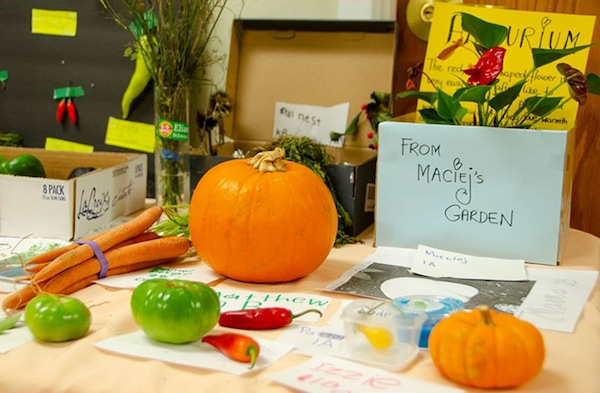
Embracing Eco-Friendly Approaches Through Service
Friends’ Central School plants the seeds of environmental consciousness in a stimulating and nurturing environment where children can grow at the onset of their academic careers.
Each fall, the Lower School, which encompasses nursery, pre-K, and Kindergarten programs, in addition to grades 1-5, creates a school-wide Harvest Show. “Students exhibit and share homegrown vegetables, fruits, herbs, flowers, and drawings of their gardens or anything in nature. The opportunity affords the Friends’ community to pause, acknowledge, wonder at, and give thanks for the earth’s bounty,” said Lower School Principal Melody Acinapura.
Teachers encourage students to apply what they’re learning in the classroom, or in the garden, to their community to make sustainable choices that challenge everyday practices.
“We had a second-grader who did a presentation about why we shouldn’t have straws at Friends’ Central. The student had all sorts of information about what straws were doing to the ocean because they studied that in science class. And so Friends’ Central stopped supplying straws — they’re gone,” said Lydia Martin.
In Middle School, students and faculty spend two hours each Wednesday engaged in a program of service. Faculty members serve as advisors, organizers, and participants. Students serve as leaders and participants where their understanding of the world and human behavior is further shaped by exploring new contexts. This work includes neighboring efforts such as cleaning the Indian Creek watershed or going as far as the nation’s capital to lobby Congress on climate change.
“We ask students to visualize problems and how they might design solutions,” said Alexa Quinn, Middle School Principal. “It’s about being able to live our mission and vision as a school and make positive change.”
As an example, Middle School students, grades 6-8, discovered a bridge washed away in Morris Park, so they designed, built, and installed a temporary, flood-proof bridge and then worked with city officials to find and fund a more permanent solution. Students also removed hundreds, if not thousands, of invasive plants and planted native plants into the space.
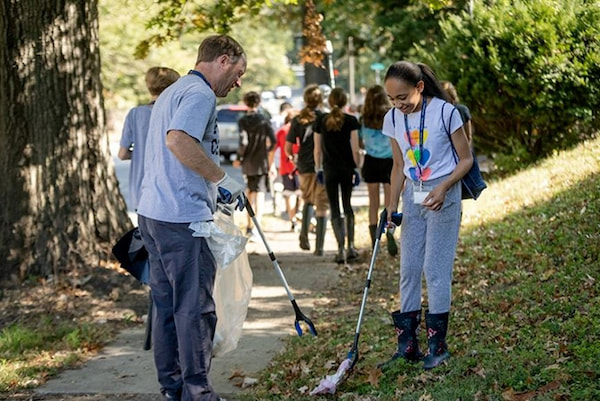
Addressing Climate Change through a Mosaic of Solutions
“At Upper School, students are reading and investigating climate fiction (Cli-Fi) in English classes to explore the effects of climate change on human society,” said Upper School Principal Bill Kennedy. “At Friends’ Central, students are encouraged from a young age to think of themselves in relation to the world. Using humanities to address critical topics like climate change gives students an important lens to refine their thinking and to recognize the urgency in a different way. Reading works of fiction such as Margaret Atwood’s Oryx and Crake and Peter Heller’s The Dog Stars creates meaningful and inspiring conversations among students.”
Another curricular example is the Upper School course Atmospheric Science and Climate Change. Upper School science and Quakerism teacher Anna Schall described it this way: “It is designed to steep students both in the scientific principles that underlie modern climate science and methods of communicating about climate change. We are responsible for empowering young people with the understanding of what is happening and how they can affect change in their communities. Students dive into the local impacts of climate change in various regions and explore how issues of access and privilege affect the impacts on different populations. They also walk away with the understanding that addressing climate change requires implementing a mosaic of solutions now, not the hope for single technological creation in the future.”
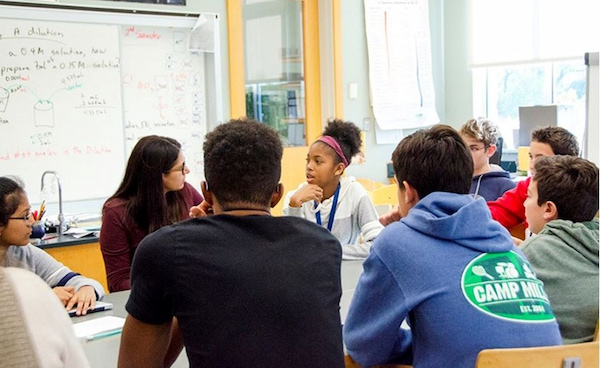
Getting to the Core
“There are so many opportunities at Friends’ Central,” said Bill Kennedy. “From classes, community service, clubs, and visiting scholars, activists, and changemakers, students have the chance to develop the leadership skills necessary to identify urgent and long-term goals and to work toward change.”
In addition to Friends’ Central’s classroom curriculum, Upper School students can join a Justice, Science, or Humanities Core Team where, in any given year, they will explore environmental justice through conversations, readings, trips, art, and other mediums. This year’s Science Core Team will welcome and study the work of Distinguished Visiting Scientist Dr. Marshall Shepherd, an international expert in weather and climate.
Modeled after intensive college-level seminars, hands-on laboratory work, and active ensemble building, the Core Teams thrive on collaboration, curiosity, creativity, and the collective energy generated by learners with a shared purpose.
“We strongly believe that if students are going to change the world, we have to start getting them used to being listened to and enacting change here. Friends’ Central School is where it all begins,” said Alexa Quinn.



